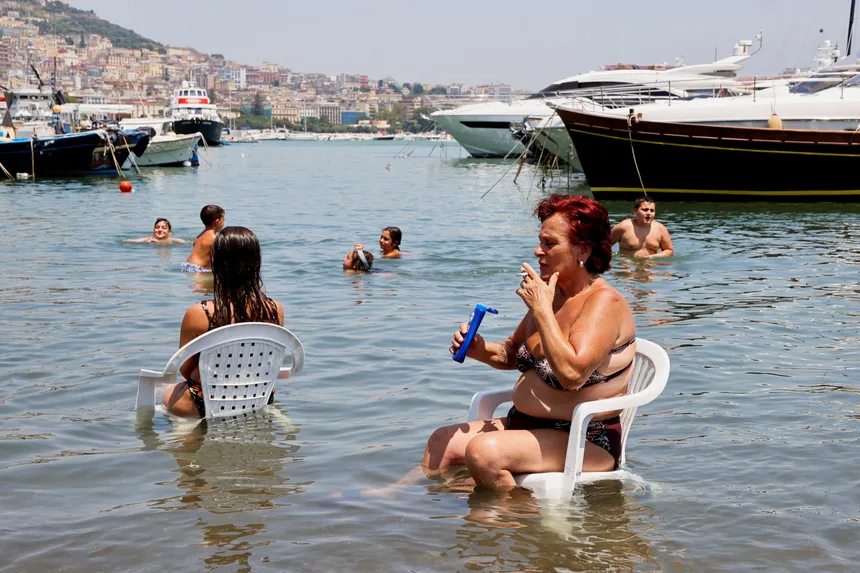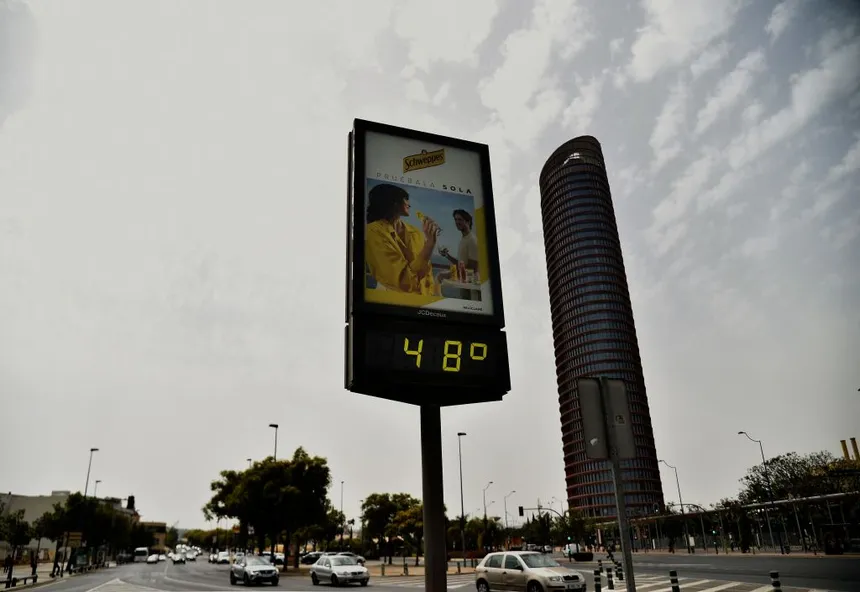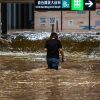Italy sweltered through temperatures reaching record highs over the weekend, with a fierce anticyclone named Caronte, or Charon, set to grip the country from Monday, sending mercury soaring beyond 40C in central and southern regions. The mercury is expected to peak at a sweltering 48C on the islands of Sicily and Sardinia, a far cry from the hot summer days Italians are accustomed to.
The sudden and brutal heat wave has caught many off guard, particularly after a spring and early summer marked by storms, flooding, and below-average temperatures. Massimo Borgia, who manages a news stand in Rome’s Esquilino neighborhood, has had to sell newspapers outside his kiosk as it’s too hot inside. “I’ve never experienced the heat this bad – it’s not normal,” he said. “We had heavy rain in June and then suddenly it was 40C. Now they say it’s going to be even worse next week.”
Kevin Cosentino, who works at a bar near the Roman square, echoed Borgia’s sentiments. “This is terrible. Apart from making the customers nervous, it’s difficult to work.” Gatsby, where Cosentino works, is located under a portico, but even the shade provides little relief from the stifling air. “Sometimes we get a little breeze wafting up from the metro,” he said, “but it’s not easy working in these conditions.”

As temperatures soar, the heat is taking a deadly toll. Research has found that there were 61,672 heat-related deaths last summer, the hottest ever recorded in Europe. Italy, Greece, Spain, and Portugal were hardest hit, with a road worker dying of a heat-related illness in Milan just last week.
To escape the heat, many are seeking out green spaces like the Nicola Calipari gardens in Rome, where Stefano Battiato’s Identity Tree community art project is promoting sustainability. “It is slightly cooler here than it is outside the gardens because we have the greenery,” he said. “So you have to drink lots of water and find places like this, because otherwise you end up staying at home or in an air-conditioned shopping centre. But then using air conditioning is a vicious circle that makes the climate crisis worse. People need to become more aware about how to be more sustainable.”

